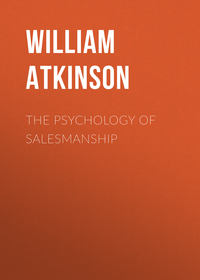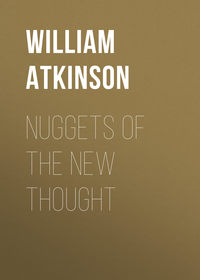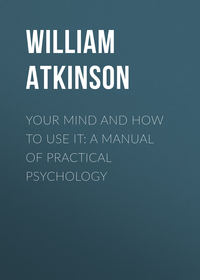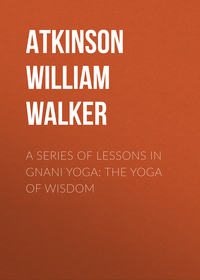 полная версия
полная версияMemory: How to Develop, Train, and Use It
CHAPTER XVIII
HOW TO REMEMBER WORDS, ETC
In a preceding chapter we gave a number of instances of persons who had highly developed their memory of words, sentences, etc. History is full of instances of this kind. The moderns fall far behind the ancients in this respect; probably because there does not exist the present necessity for the feats of memory which were once accepted as commonplace and not out of the ordinary. Among ancient people, when printing was unknown and manuscripts scarce and valuable, it was the common custom of the people to learn "by heart" the various sacred teachings of their respective religions. The sacred books of the Hindus were transmitted in this way, and it was a common thing among the Hebrews to be able to recite the books of Moses and the Prophets entirely from memory. Even to this day the faithful Mohammedans are taught to commit the entire Koran to memory. And investigation reveals, always, that there has been used the identical process of committing these sacred books to memory, and recalling them at will – the natural method, instead of an artificial one. And therefore we shall devote this chapter solely to this method whereby poems or prose may be committed to memory and recalled readily.
This natural method of memorizing words, sentences, or verses is no royal road. It is a system which must be mastered by steady work and faithful review. One must start at the beginning and work his way up. But the result of such work will astonish anyone not familiar with it. It is the very same method that the Hindus, Hebrews, Mohammedans, Norsemen, and the rest of the races, memorized their thousands of verses and hundreds of chapters of the sacred books of their people. It is the method of the successful actor, and the popular elocutionist, not to mention those speakers who carefully commit to memory their "impromptu" addresses and "extemporaneous" speeches.
This natural system of memorizing is based upon the principle which has already been alluded to in this book, and by which every child learns its alphabet and its multiplication table, as well as the little "piece" that it recites for the entertainment of its fond parents and the bored friends of the family. That principle consists of the learning of one line at a time, and reviewing that line; then learning a second line and reviewing that; and then reviewing the two lines together; and so on, each addition being reviewed in connection with those that went before. The child learns the sound of "A;" then it learns "B;" then it associates the sounds of "A, B" in its first review; the "C" is added and the review runs: "A, B, C." And so on until "Z" is reached and the child is able to review the entire list from "A to Z," inclusive. The multiplication table begins with its "twice 1 is 2," then "twice 2 is 4," and so on, a little at a time until the "twos" are finished and the "threes" begun. This process is kept up, by constant addition and constant review, until "12 twelves" finishes up the list, and the child is able to repeat the "tables" from first to last from memory.
But there is more to it, in the case of the child, than merely learning to repeat the alphabet or the multiplication table – there is also the strengthening of the memory as a result of its exercise and use. Memory, like every faculty of the mind, or every muscle of the body, improves and develops by intelligent and reasonable use and exercise. Not only does this exercise and use develop the memory along the particular line of the faculty used, but also along every line and faculty. This is so because the exercise develops the power of concentration, and the use of the voluntary attention.
We suggest that the student who wishes to acquire a good memory for words, sentences, etc., begin at once, selecting some favorite poem for the purpose of the demonstration. Then let him memorize one verse of not over four to six lines to begin with. Let him learn this verse perfectly, line by line, until he is able to repeat it without a mistake. Let him be sure to be "letter perfect" in that verse – so perfect that he will "see" even the capital letters and the punctuation marks when he recites it. Then let him stop for the day. The next day let him repeat the verse learned the day before, and then let him memorize a second verse in the same way, and just as perfectly. Then let him review the first and second verses together. This addition of the second verse to the first serves to weld the two together by association, and each review of them together serves to add a little bit to the weld, until they become joined in the mind as are "A, B, C." The third day let him learn a third verse, in the same way and then review the three. Continue this for say a month, adding a new verse each day and adding it to the verses preceding it. But constantly review them from beginning to end. He cannot review them too often. He will be able to have them flow along like the letters of the alphabet, from "A" to "Z" if he reviews properly and often enough.
Then, if he can spare the time, let him begin the second month by learning two verses each day, and adding to those that precede them, with constant and faithful reviews. He will find that he can memorize two verses, in the second month, as easily as he did the one verse in the first month. His memory has been trained to this extent. And so, he may proceed from month to month, adding an extra verse to his daily task, until he is unable to spare the time for all the work, or until he feels satisfied with what he has accomplished. Let him use moderation and not try to become a phenomenon. Let him avoid overstraining. After he has memorized the entire poem, let him start with a new one, but not forget to revive the old one at frequent intervals. If he finds it impossible to add the necessary number of new verses, by reason of other occupation, etc., let him not fail to keep up his review work. The exercise and review is more important than the mere addition of so many new verses.
Let him vary the verses, or poems with prose selections. He will find the verses of the Bible very well adapted for such exercise, as they lend themselves easily to registration in the memory. Shakespeare may be used to advantage in this work. The "Rubaiyat" of Omar Khayyam; or the "Lady of the Lake" by Scott; or the "Song Celestial" or "Light of Asia" both by Edwin Arnold, will be found to be well adapted to this system of memorizing, the verses of each being apt to "stick in the memory," and each poem being sufficiently long to satisfy the requirements of even the most ambitious student. To look at the complete poem (any of those mentioned) it would seem almost impossible that one would ever be able to memorize and recite it from beginning to end, letter perfect. But on the principle of the continual dripping of water wearing away the stone; or the snowball increasing at each roll; this practice of a little being associated to what he already has will soon allow him to accumulate a wonderfully large store of memorized verses, poems, recitations, etc. It is an actual demonstration of the catchy words of the popular song which informs one that: "Every little bit, added to what you've got, makes just a little bit more."
After he has acquired quite a large assortment of memorized selections, he will find it impossible to review them all at one time. But he should be sure to review them all at intervals, no matter how many days may elapse between each review.
The student who has familiarized himself with the principles upon which memory depends, as given in the preceding chapters, will at once see that the three principles of attention, association and repetition are employed in the natural method herein recommended. Attention must be given in order to memorize each verse in the first place; association is employed in the relationship created between the old verses and the new ones; and repetition is employed by the frequent reviewing, which serves to deepen the memory impression each time the poem is repeated. Moreover, the principle of interest is invoked, in the gradual progress made, and the accomplishment of what at first seemed to be an impossible task – the game element is thus supplied, which serves as an incentive. These combined principles render this method an ideal one, and it is not to be wondered that the race has so recognized it from the earliest times.
CHAPTER XIX
HOW TO REMEMBER BOOKS, PLAYS, TALES, ETC
In the preceding chapters we have given you suggestions for the development of the principal forms of memory. But there are still other phases or forms of memory, which while coming under the general classification may be still considered as worthy of special consideration. For instance there may be suggestions given regarding the memorization of the contents of the books you read, the stories you hear, etc. And so we have thought it advisable to devote one chapter to a consideration of these various phases of memory that have been "left out" of the other chapters.
Many of us fail to remember the important things in the books we read, and are often mortified by our ignorance regarding the contents of the works of leading authors, or of popular novels, which although we have read, we have failed to impress upon the records of our memory. Of course we must begin by reminding you of the ever present necessity of interest and attention – we cannot escape from these principles of the memory. The trouble with the majority of people is that they read books "to kill time," as a sort of mental narcotic or anæsthetic, instead of for the purpose of obtaining something of interest from them. By this course we not only lose all that may be of importance or value in the book, but also acquire the habit of careless reading and inattention. The prevalence of the habit of reading many newspapers and trashy novels is responsible for the apparent inability of many persons to intelligently absorb and remember the contents of a book "worth while" when they do happen to take up such a one. But, still, even the most careless reader may improve himself and cure the habit of inattention and careless reading.
Noah Porter says: "We have not read an author till we have seen his object, whatever it may be, as he saw it." Also: "Read with attention. This is the rule that takes precedence of all others. It stands instead of a score of minor directions. Indeed it comprehends them all, and is the golden rule… The page should be read as if it were never to be seen a second time; the mental eye should be fixed as if there were no other object to think of; the memory should grasp the facts like a vise; the impressions should be distinctly and sharply received." It is not necessary, nor is it advisable to attempt to memorize the text of a book, excepting, perhaps, a few passages that may seem worthy to be treasured up word for word. The principal thing to be remembered about a book is its meaning– what it is about. Then may follow the general outline, and the details of the story, essay, treatise or whatever it may be. The question that should be asked oneself, after the book is completed, or after the completion of some particular part of the book, is: "What was the writer's idea – what did he wish to say?" Get the idea of the writer. By taking this mental attitude you practically place yourself in the place of the writer, and thus take part in the idea of the book. You thus view it from the inside, rather than from the outside. You place yourself at the centre of the thing, instead of upon its circumference.
If the book be a history, biography, autobiography, narrative, or story of fact or fiction, you will find it of value to visualize its occurrences as the story unfolds. That is, endeavor to form at least a faint mental picture of the events related, so that you see them "in your mind's eye," or imagination. Use your imagination in connection with the mechanical reading. In this way you build up a series of mental pictures, which will be impressed upon your mind, and which will be remembered just as are the scenes of a play that you have witnessed, or an actual event that you have seen, only less distinct of course. Particularly should you endeavor to form a clear mental picture of each character, until each one is endowed with at least a semblance of reality to you. By doing this you will impart a naturalness to the events of the story and you will obtain a new pleasure from your reading. Of course, this plan will make you read more slowly, and many trashy tales will cease to interest you, for they do not contain the real elements of interest – but this is no loss, but is a decided gain for you. At the end of each reading, take the time to mentally review the progress of the story – let the characters and scenes pass before your mental vision as in a moving picture. And when the book is finally completed, review it as a whole. By following this course, you will not only acquire the habit of easily remembering the tales and books that you have read, but will also obtain much pleasure by re-reading favorite stories in your imagination, years after. You will find that your favorite characters will take on a new reality for you, and will become as old friends in whose company you may enjoy yourself at any time, and whom you may dismiss when they tire you, without offense.
In the case of scientific treatises, essays, etc., you may follow a similar plan by dividing the work into small sections and mentally reviewing the thought– (not the words) of each section until you make it your own; and then by adding new sections to your review, you may gradually absorb and master the entire work. All this requires time, work and patience, but you will be repaid for your expenditure. You will find that this plan will soon render you impatient at books of little consequence, and will drive you to the best books on any given subject. You will begin to begrudge your time and attention, and hesitate about bestowing them upon any but the very best books. But in this you gain.
In order to fully acquaint yourself with a book, before reading it you should familiarize yourself with its general character. To do this you should pay attention to the full title, and the sub-title, if there be any; the name of the author and the list of other books that he has written, if they are noted on the title page, or the one preceding it, according to the usual custom. You should read the preface and study carefully the table of contents, that you may know the field or general subject covered by the book – in other words endeavor to get the general outline of the book, into which you may afterwards fill in the details.
In reading a book of serious import, you should make it a point to fully grasp the meaning of each paragraph before passing on to the next one. Let nothing pass you that you do not understand, at least in a general way. Consult the dictionary for words not familiar to you, so that you may grasp the full idea intended to be expressed. At the end of each chapter, section and part, you should review that which you have read, until you are able to form a mental picture of the general ideas contained therein.
To those who wish to remember the dramatic productions that they have attended, we would say that the principles above mentioned may be applied to this form of memory as well as to the memory of books. By taking an interest in each character as it appears; by studying carefully each action and scene, and then reviewing each act in the intervals between the acts; and by finally reviewing the entire play after your return home; you will fasten the whole play as a complete mental picture, on the records of your memory. If you have acquainted yourself with what we have just said regarding the recollection of the contents of books, you will be able to modify and adapt them to the purpose of recollecting plays and dramatic productions. You will find that the oftener you review a play, the more clearly will you remember it. Many little details overlooked at first will come into the field of consciousness and fit into their proper places.
Sermons, lectures and other discourses may be remembered by bestowing interest and attention upon them, and by attempting to grasp each general idea advanced, and by noting the passage from one general idea to another. If you will practice this a few times, you will find that when you come to review the discourse (and this you should always do – it is the natural way of developing memory) the little details will come up and fit into their proper places. In this form of memory, the important thing is to train the memory by exercise and review. You will find that at each review of a discourse you will have made progress. By practice and exercise, the subconscious mentality will do better work, and will show that it is rising to its new responsibilities. You have allowed it to sleep during the many discourses to which you have listened, and it must be taught new habits. Let it know that it is expected to retain that which it hears, and then exercise it frequently by reviews of discourses, and you will be surprised at the degree of the work it will perform for you. Not only will you remember better, but you will hear better and more intelligently. The subconsciousness, knowing that it will be called upon later on to recollect what is being said, will urge you to bestow the attention necessary to supply it with the proper material.
To those who have had trouble in remembering discourses, we urge that they should begin to attend lectures and other forms of discourse, with the distinct purpose of developing that form of memory. Give to the subconscious mentality the positive command that it shall attend to what is being said, and shall record the same in such a way that when you review the discourse afterward you will be presented with a good synopsis or syllabus of it. You should avoid any attempt to memorize the words of the discourse – your purpose being to absorb and record the ideas and general thought expressed. Interest – Attention – Practice – Review – these are the important points in memory.
To remember stories, anecdotes, fables, etc., the principles given above are to be employed. The main thing in memorizing an anecdote is to be able to catch the fundamental idea underlying it, and the epigrammatic sentence, or central phrase which forms the "point" of the story. Be sure that you catch these perfectly, and then commit the "point" to memory. If necessary make a memorandum of the point, until you have opportunity to review the story in your mind. Then carefully review it mentally, letting the mental image of the idea pass before you in review, and then repeating it to yourself in your own words. By rehearsing and reviewing the story, you make it your own and will be able to relate it afterward just as you would something that you had actually experienced. So true is this principle, that when carried too far it endows the story with a false sense of actuality – who has not known men who told a story so often that they came actually to believe it themselves? Do not carry the principle to this extreme but use it in moderation. The trouble with many men is that they attempt to repeat a tale, long after they have heard it, without reviewing or rehearsing in the meantime. Consequently they omit many important points, because they have failed to impress the story as a whole upon the memory. In order to know an anecdote properly, one should be able to see its characters and incidents, just as he does when he sees an illustrated joke in a comic paper. If you can make a mental picture of an anecdote, you will be apt to remember it with ease. The noted story tellers review and rehearse their jokes, and have been known to try them on their unsuspecting friends in order to get the benefit of practice before relating them in public – this practice has been called by flippant people: "trying it on the dog." But it has its good points, and advantages. It at least saves one the mortification of being compelled to finish up a long-drawn out tale by an: "Er – well, um-m-m – I'm afraid I've forgotten just how that story ended – but it was a good one!"
CHAPTER XX
GENERAL INSTRUCTIONS
In this chapter we shall call your attention to certain of the general principles already mentioned in the preceding chapters, for the purpose of further impressing them upon your mind, and in order that you may be able to think of and to consider them independent of the details of the special phases of memory. This chapter may be considered in the nature of a general review of certain fundamental principles mentioned in the body of the work.
POINT I. Give to the thing that you wish to memorize, as great a degree of concentrated attention as possible.
We have explained the reason for this advice in many places in the book. The degree of concentrated attention bestowed upon the object under consideration, determines the strength, clearness and depth of the impression received and stored away in the subconsciousness. The character of these stored away impressions determines the degree of ease in remembrance and recollection.
POINT II. In considering an object to be memorized, endeavor to obtain the impressions through as many faculties and senses as possible.
The reason for this advice should be apparent to you, if you have carefully read the preceding chapters. An impression received through both sound and sight is doubly as strong as one received through but one of these channels. You may remember a name, or word, either by having seen it in writing or print; or else by reason of having heard it; but if you have both seen and heard it you have a double impression, and possess two possible ways of reviving the impression. You are able to remember an orange by reason of having seen it, smelt it, felt it and tasted it, and having heard its name pronounced. Endeavor to know a thing from as many sense impressions as possible – use the eye to assist ear-impressions; and the ear to assist in eye-impressions. See the thing from as many angles as possible.
POINT III. Sense impressions may be strengthened by exercising the particular faculty through which the weak impressions are received.
You will find that either your eye memory is better than your ear memory, or vice versa. The remedy lies in exercising the weaker faculty, so as to bring it up to the standard of the stronger. The chapters of eye and ear training will help you along these lines. The same rule applies to the several phases of memory – develop the weak ones, and the strong ones will take care of themselves. The only way to develop a sense or faculty is to intelligently train, exercise and use it. Use, exercise and practice will work miracles in this direction.
POINT IV. Make your first impression strong and firm enough to serve as a basis for subsequent ones.
Get into the habit of fixing a clear, strong impression of a thing to be considered, from the first. Otherwise you are trying to build up a large structure upon a poor foundation. Each time you revive an impression you deepen it, but if you have only a dim impression to begin with, the deepened impressions will not include details omitted in the first one. It is like taking a good sharp negative of a picture that you intend to enlarge afterward. The details lacking in the small picture will not appear in the enlargement; but those that do appear in the small one, will be enlarged with the picture.
POINT V. Revive your impressions frequently and thus deepen them.
You will know more of a picture by seeing it a few minutes every day for a week, than you would by spending several hours before it at one time. So it is with the memory. By recalling an impression a number of times, you fix it indelibly in your mind in such a way that it may be readily found when needed. Such impressions are like favorite tools which you need every little while – they are not apt to be mislaid as are those which are but seldom used. Use your imagination in "going over" a thing that you wish to remember. If you are studying a thing, you will find that this "going over" in your imagination will help you materially in disclosing the things that you have not remembered about it. By thus recognizing your weak points of memory, you may be able to pick up the missing details when you study the object itself the next time.









